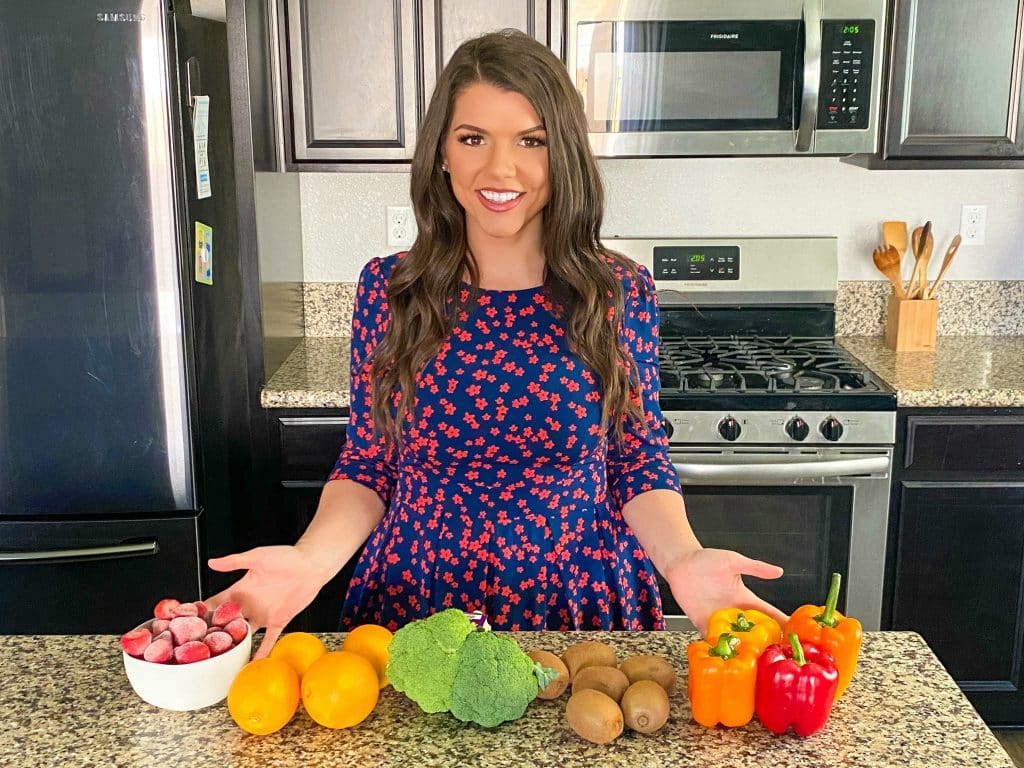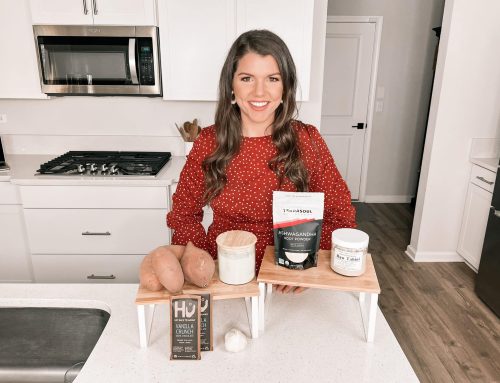
As we approach cold and flu season it's still important that we eat good foods that will help keep our immune system boosted!
We hear so much about boosting vitamin C levels but how much do we actually need?
Well it appears that 200 mg is the magic number as studies have shown that's how much our body can absorb. If we get more than that our bodies usually just flush it out.
That means taking high doses of vitamin C supplements might just be a waste of money!
There's also been studies that have shown high doses of vitamin C can lead to kidney stones in some people so that's definitely something to be cautious of.
The good news is it's completely possible to get all the vitamin C you need from real foods! And another bonus of getting your vitamin C from foods is it's shown to lower the risk of stroke! This cannot be said for vitamin C supplements
Here's 5 foods that are high in vitamin C
Bell Peppers
One cup of red bell peppers gives you 190 mg of vitamin C! Only 10 more milligrams and you'll have all you need for a day. The bell peppers do need to be raw as cooked bell peppers do lose some of their nutrients. I love adding bell peppers to salads, sandwiches or just dipping them in hummus for a healthy snack!
Kiwi
One kiwi gives about 64 mg, or 32% of your daily vitamin C needs. Kiwis have also shown to improve sleep which can also help keep you healthy! Eating one or two kiwis a day will help to boost the immune system.
Broccoli
This is another vegetable that is packed with vitamin C as one cup of cooked broccoli provides 100 mg of it! Broccoli is also filled with antioxidants and other nutrients that will keep you healthy! Get my favorite broccoli soup recipe here!
Oranges
I think we all know oranges have vitamin C! One orange will give you about 25% of your daily vitamin C coming in at 51 mg. They're in season now so you can easily find them at the grocery store or farmer's market!
Strawberries
One cup of strawberries gives 84.7 mg of vitamin C. When strawberries are not in season I recommend getting them frozen. Since they're picked at their prime before freezing they usually have just as many nutrients as fresh. They can be added to things like smoothies or thaw them out to add to oatmeal.




